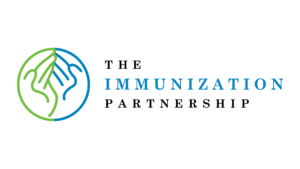A Child Has Died from Measles—We Cannot Let This Become the New Normal
An unvaccinated child in Texas has died from measles—the first U.S. death since 2015—while cases continue to rise.In their op-ed, Amy Pisani (Vaccinate Your Family) and Terri Burke (The Immunization Partnership) call for urgent action to prevent more needless deaths and protect public health.
An unvaccinated child has died from measles in Lubbock, Texas and the Lubbock Public Health District has confirmed that more than 20 people are hospitalized. When asked about this at a Cabinet meeting, Health and Human Services Secretary Robert F. Kennedy, Jr downplayed the seriousness of this death by saying that measles outbreaks happen every year. This attempt to normalize the first death from measles in the U.S. since 2015, and the growing outbreak of a potentially fatal, vaccine preventable disease marks a retreat from the life-saving success the US has enjoyed for the last 25 years, when measles was officially declared to be eliminated from the United States.
This major milestone coincided with hearings on the causes of autism hosted by the Government Reform Committee of the U.S House of Representatives. Those hearings were designed to push a disproven theory that vaccines can cause autism. The star witness was Andrew Wakefield—a British doctor who was later stripped of his medical license for falsifying his data.
Wakefield was a compelling and charismatic speaker. His theories appeared plausible to many, especially as the rise in autism diagnoses was being documented. Those of us in the vaccine community feared that his claims would erode public trust in vaccines, but none of us anticipated just how far-reaching the consequences would be.
The damage from his falsehoods, and the massive growth of the anti-vaccine industry, has lasted for decades, leading to the tragic loss of lives both in the U.S. and abroad.
Before the measles vaccine was introduced, an estimated 48,000 people were hospitalized and 400-500 died in the U.S. each year. Since measles was eliminated in the U.S., we’ve seen several major outbreaks, mainly among unvaccinated individuals —Ohio, Minnesota, Disney, New York—but each time, we managed to control them through education and vaccination. Until now, we had not lost a child, and our status as a measles-free nation remained intact. The current outbreak – now 124 cases in the Panhandle of Texas and nine cases in a neighboring New Mexico county – began in an under-vaccinated community and is now spilling over into neighboring counties and potentially urban areas in Central Texas.
Texas, like 16 other states, makes it easy for parents to opt out of school-based measles vaccine requirements. In passing the legislation to streamline the exemption process more than 20 years ago, legislators cited the importance of allowing parents to make a choice about whether to vaccinate. In this school year, more than 118,000 exemptions from school entry requirements were submitted. Gaines County, southwest of Lubbock, where the outbreak began, started the 2023-2024 school year with only 82 percent of kindergarteners having received the MMR vaccine, a number that has declined steadily over the past 10 years. Public health experts have been clear that in order to avoid outbreaks, communities need to maintain measles vaccine rates of 95 percent.
If we continue to see sustained transmission for the next year—which seems likely—we could lose our measles elimination status and more lives. This would be a devastating step backward for our nation’s health, and particularly for the well-being of our children.
We know how to control these outbreaks. The measles vaccine is incredibly effective in preventing infection as well as transmission. And we have seen with previous outbreaks the power of locally based trusted messengers who can talk to the members of the community and address any concerns they may have. These efforts require resources as well as leadership, and it is critical that the federal government provide both so that more children don’t die from this preventable disease.
In his remarks at the Cabinet meeting today, Secretary Kennedy said that HHS is “following the measles epidemic.” But the American public deserves immediate action from HHS to help control this outbreak. Secretary Kennedy should state clearly and unambiguously that the benefits of measles immunization far outweigh any risk and that anyone who is unvaccinated should get vaccinated unless they have a clear medical contraindication.
CDC should provide human resources to support the state and local health departments’ efforts to conduct the epidemiology and surveillance necessary to control this outbreak. HHS should provide financial resources to support the critical work of local trusted messengers who can work with the community and help navigate individuals to immunization services.
Measles is serious. One in five unvaccinated people in the U.S. who contract measles will require hospitalization, one out of every 20 children with measles gets pneumonia, which is the most common cause of death from measles in young children. One in 1,000 will develop encephalitis (swelling of the brain) and nearly one to three of every 1,000 children will die from respiratory and neurologic complications. Children dying of measles is not normal. Secretary Kennedy can best serve the American people by protecting the public from these preventable threats. There is no time to waste.

